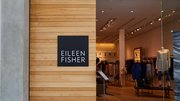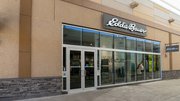Article
Pop-up retail grows up
Like food trucks before them, are retail trucks the next hot consumer trend?

September 7, 2012 by Natalie Gagliordi — Editor of KioskMarketplace.com, Networld Media Group
Temporary retail is nothing new. In fact, the term dates back to more than a decade ago. The phrase "pop-up retail" was coined in a 2004 article on TrendWatching.com and the concept goes further back in time to 1999 with the aptly-named Los Angeles-based store Vacant being hailed as the first pop-up in the U.S.
The international origin of the pop-up concept is unclear—even Vacant founders claim to have seen the idea in action while on a trip to Tokyo—and seasonal stores selling fireworks, Christmas trees or Halloween costumes are prime examples of how these types of retailers have become commonplace in the U.S.
But the last several years have seen a boom in temporary or mobile retailers, one that takes out the kitschy and replaces it with curated classy. And just as the food truck industry took off in Los Angeles in recent years, the mobile and pop-up retail trends are in position to restructure the retail industry and what it means to own a personal business.
 Take Sarah Ellison Lewis. She operates Bootleg, a rare and high-end shoe store, out of an Airstream trailer in Austin, Texas. With the insurmountable cost of renting a brick-and-mortar retail space, Lewis opted for the mobile approach and has garnered a top spot on the list of hot mobile retailers in the country.
Take Sarah Ellison Lewis. She operates Bootleg, a rare and high-end shoe store, out of an Airstream trailer in Austin, Texas. With the insurmountable cost of renting a brick-and-mortar retail space, Lewis opted for the mobile approach and has garnered a top spot on the list of hot mobile retailers in the country.
"It is enormously more cost effective, as rent is a third of the cost," Lewis said. "In addition, the trailer's casual nature makes customers more forgiving of untraditional schedules, allowing me to keep my overhead low."
While the Airstream store allows for an obvious level of freedom and diversity, Lewis feels that the pop-up trend makes an entrepreneurial statement, marking a consumer-driven shift in buying power. The mobile retail trend is a "screaming symptom of the diseased economy," Lewis said, resulting from retail saturation, corporate bullying and a general feeling of consumer exhaustion.
"Retail should be about pleasure, not feeling bad about yourself because of what you can't buy or have or be," she said. "That concept is tired and over and boring. In this case, small businesses are winning because people no longer have to buy things they don't connect with."
The struggling global economy is not the only fuel for the pop-up phenomenon. According to Nicholas Russell, CEO of London-based Ephemeral Labs and its platform WeArePopUp, a web-based community connecting pop-up retailers to consumers, pop-up retail sits at the confluence of two other worldwide trends—mobile technology and a maker economy.
The rise of mobile technology has enabled a dynamic navigation of cities in real-time, Russell said, allowing the city itself to move from a static experience to a vibrant experience. Retailers announce flash sales through social media, pop-ups tweet their location to followers—a system entirely unavailable before the smartphone.
The maker economy allows amateurs to seamlessly become professionals and test their concepts before investing in brick-and-mortar, Russell explained. With less risk for failure and no long-term leases, pop-up retail is more attractive to the fiscally constrained.
Whether or not pop-up and mobile retailers will see the same long-term success as traditional retailers is an outcome still unforeseen. According to Russell, comparing pop-ups to commercial retail is necessary, however not sufficient.
"It's similar to any disruptive innovation," Russell said. "When Internet advertising was first compared to mainstream media advertising, it made little sense—the metrics were wrong. Once encompassing metrics were established, everyone saw the real business cases behind online advertising, and the rest is history."
Perhaps pop-ups will write a history of their own. WeArePopUp is slated to launch their mobile app this month and will be available worldwide to help consumers receive a dedicated listing of pop-up experiences that are always new and local.
Lewis and her Bootleg trailer also have a busy fall, embarking on a 20 city tour that she says will "tweet our way into people's communities and hearts."
And it's that always-changing interest that pop-up retailers and organizers think will keep the trend around for years to come.
"The Internet has shown consumers how dynamic commerce can be, and they love it," said Russell. "Pop-ups bring that dynamism and excitement of discovery offline."
 ChatGPT
ChatGPT Grok
Grok Perplexity
Perplexity Claude
Claude




